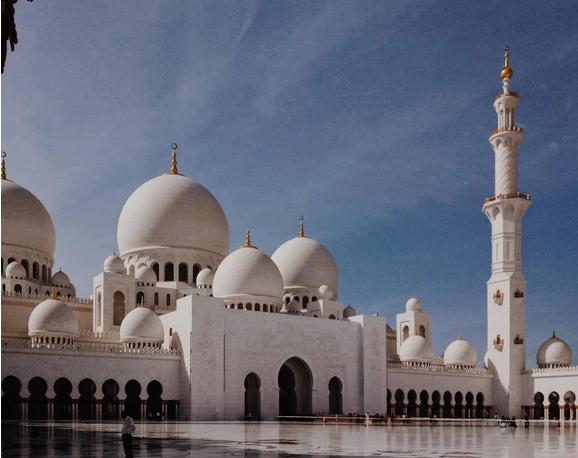ആത്മാവും സമ്പത്തും ശുദ്ധമാകുന്ന വഴി

സലാത്തും സകാത്തും: ആത്മാവും സമ്പത്തും ശുദ്ധമാകുന്ന വഴി
ആമുഖം: ഇസ്ലാമിക ജീവിതത്തിന്റെ രണ്ട് ദീപസ്തംഭങ്ങൾ
ഇസ്ലാം മനുഷ്യജീവിതത്തെ സമഗ്രമായി പരിപോഷിപ്പിക്കുന്ന ദൈവിക മാർഗ്ഗമാണ്. മനുഷ്യന്റെ ആത്മാവിനെയും സമ്പത്തെയും ഒരുപോലെ ശുദ്ധീകരിക്കുന്നതാണ് ഇസ്ലാമിക ഉപദേശങ്ങളുടെ സവിശേഷത. ആ വിശുദ്ധ ഘടനയിലെ പ്രധാന രണ്ട് ദീപസ്തംഭങ്ങളാണ് **സലാത്ത് (നമസ്കാരം)**യും **സകാത്ത് (ദാനം)**യും. സലാത്ത് മനുഷ്യനെ അല്ലാഹുവുമായി ബന്ധിപ്പിക്കുമ്പോൾ, സകാത്ത് മനുഷ്യനെ മനുഷ്യനുമായി ബന്ധിപ്പിക്കുന്നു. ഈ രണ്ട് ആരാധനകളും ചേർന്നപ്പോൾ, ഒരു മുസ്ലിമിന്റെ ജീവിതം ആത്മീയവും സാമൂഹികവുമായ സമ്പൂർണ്ണതയിലേക്ക് ഉയരുന്നു.
“നമസ്കാരം സ്ഥാപിക്കുകയും സകാത്ത് നൽകുകയും ചെയ്യുന്നവരാണ് യഥാർത്ഥ വിശ്വാസികൾ.” (ഖുർആൻ 9:71)
ഈ ലേഖനം സലാത്തിന്റെയും സകാത്തിന്റെയും ആത്മീയ–മിസ്റ്റിക്കൽ അർത്ഥങ്ങൾ വിശദീകരിക്കുന്ന ഒരു ദൈവിക യാത്രയാണ്.
സലാത്ത്: ആത്മാവിന്റെ ദൈവിക സംഭാഷണം
സലാത്ത് എന്താണ്?
സലാത്ത് വെറും ശാരീരിക ചലനങ്ങളുടെ ഒരു അനുഷ്ഠാനം മാത്രമല്ല. അത് ആത്മാവും സ്രഷ്ടാവും തമ്മിലുള്ള സജീവ സംഭാഷണമാണ്. ദിവസത്തിൽ അഞ്ചു പ്രാവശ്യം ലോകത്തിന്റെ ശബ്ദങ്ങളിൽ നിന്ന് മാറി, മനുഷ്യൻ അല്ലാഹുവിന്റെ സന്നിധിയിൽ നിൽക്കുകയാണ് സലാത്തിലൂടെ.
“എന്നെ സ്മരിക്കുവാൻ നമസ്കാരം സ്ഥാപിക്കുക.” (ഖുർആൻ 20:14)
ഈ ആയത്ത് വ്യക്തമാക്കുന്നത്, സലാത്തിന്റെ ഹൃദയം സ്മരണ (ദിക്റ്) ആണെന്ന truth ആണ്.
സലാത്ത് ആത്മാവിനെ എങ്ങനെ രൂപപ്പെടുത്തുന്നു?
സലാത്ത് മനുഷ്യനെ സമയബോധത്തിലേക്ക് നയിക്കുന്നു. ഓരോ നമസ്കാരവും മനുഷ്യനെ ഓർമ്മിപ്പിക്കുന്നു: ജീവിതം നിയന്ത്രണമില്ലാത്ത ഒഴുക്കല്ല, ദൈവിക ക്രമത്തിലൂടെ ഒഴുകുന്ന ഒരു യാത്രയാണ്.
“നിശ്ചയമായും നമസ്കാരം അശ്ലീലതയിലും ദുഷ്കൃത്യങ്ങളിലും നിന്ന് തടയുന്നു.” (ഖുർആൻ 29:45)
സലാത്ത് ആത്മനിയന്ത്രണത്തിന്റെ പാഠശാലയാണ്. അത് ഹൃദയത്തെ ശുദ്ധീകരിക്കുകയും ചിന്തകളെ ശാന്തമാക്കുകയും ചെയ്യുന്നു.
സലാത്തിന്റെ ആത്മീയ പാളികൾ
കിയാം: വിനയത്തോടെ നിൽക്കൽ
നമസ്കാരത്തിലെ നിൽപ്പ് (കിയാം) മനുഷ്യനെ തന്റെ സ്രഷ്ടാവിന്റെ മുമ്പിൽ ചെറുതായി നിൽക്കാൻ പഠിപ്പിക്കുന്നു. അഹങ്കാരത്തിന്റെ ഭാരങ്ങൾ ഇവിടെ വീഴുന്നു.
റുകൂഉം സുജൂദും: ആത്മാവിന്റെ പൂർണ്ണ സമർപ്പണം
സുജൂദിൽ മനുഷ്യൻ ഭൂമിയോട് ചേർന്നു കിടക്കുമ്പോൾ, ആത്മാവ് ഏറ്റവും ഉയരത്തിലാണ്.
“സുജൂദം ചെയ്യുകയും അടുത്തുവരികയും ചെയ്യുക.” (ഖുർആൻ 96:19)
ഇത് ആത്മീയ മിസ്റ്റിസത്തിന്റെ ഉന്നതാവസ്ഥയാണ് – താഴ്ന്നാൽ ഉയരാം എന്ന ദൈവിക രഹസ്യം.
സലാത്ത് ജീവിതത്തിലുണ്ടാക്കുന്ന മാറ്റങ്ങൾ
സ്ഥിരതയും ശാന്തിയും
സലാത്ത് മനുഷ്യന്റെ ജീവിതത്തിൽ സ്ഥിരത നൽകുന്നു. പ്രതിസന്ധികളിൽ പോലും ഹൃദയം തകർന്നുപോകാതിരിക്കാൻ ഇത് സഹായിക്കുന്നു.
“ക്ഷമയിലും നമസ്കാരത്തിലുമാണ് സഹായം തേടുക.” (ഖുർആൻ 2:45)
ആത്മബോധവും ഉത്തരവാദിത്തവും
നിത്യസലാത്ത് മനുഷ്യനെ തന്റെ പ്രവൃത്തികൾക്ക് ഉത്തരവാദിയാക്കുന്നു. അല്ലാഹുവിന്റെ മുമ്പിൽ നിൽക്കുന്ന ഒരാൾ അനീതിയോട് അനാസക്തനാകില്ല.
സകാത്ത്: സമ്പത്തിന്റെ ആത്മീയ ശുദ്ധീകരണം
സകാത്ത് എന്താണ്?
സകാത്ത് വെറും ദാനം അല്ല. അത് സമ്പത്തിന്റെ ശുദ്ധീകരണമാണ്. അല്ലാഹു നൽകിയ സമ്പത്തിൽ നിന്ന് അവൻ തന്നെ നിർദ്ദേശിച്ച അളവിൽ അവന്റെ അടിയാർക്ക് നൽകലാണ് സകാത്ത്.
“അവരുടെ സമ്പത്തിൽ നിന്ന് സകാത്ത് എടുക്കുക; അതിലൂടെ നീ അവരെ ശുദ്ധീകരിക്കുകയും ശുദ്ധിയിലേക്കുയർത്തുകയും ചെയ്യുക.” (ഖുർആൻ 9:103)
ഈ ആയത്ത് സകാത്തിന്റെ ആത്മീയ ലക്ഷ്യം വ്യക്തമാക്കുന്നു.
സമ്പത്തും പരീക്ഷണവും
ഇസ്ലാമിക ദർശനത്തിൽ സമ്പത്ത് അനുഗ്രഹവും പരീക്ഷണവുമാണ്.
“നിങ്ങളുടെ സമ്പത്തും മക്കളും ഒരു പരീക്ഷണമത്രേ.” (ഖുർആൻ 8:28)
സകാത്ത് ഈ പരീക്ഷണത്തിൽ വിജയിക്കാൻ മനുഷ്യനെ സഹായിക്കുന്നു.
സകാത്തിന്റെ ആത്മീയ–സാമൂഹിക മിസ്റ്റിസം
ഉടമസ്ഥതയുടെ ഭ്രമം തകർക്കൽ
സകാത്ത് മനുഷ്യനെ ഓർമ്മിപ്പിക്കുന്നു: സമ്പത്തിന്റെ യഥാർത്ഥ ഉടമ അല്ലാഹുവാണ്.
“അല്ലാഹുവിന്റെ സമ്പത്തിൽ നിന്ന് നിങ്ങൾ ചെലവഴിക്കുക.” (ഖുർആൻ 57:7)
ഈ ബോധം ഹൃദയത്തെ ലഘൂകരിക്കുന്നു.
ഹൃദയങ്ങളുടെ ബന്ധം
സകാത്ത് സമ്പന്നനും ദരിദ്രനും തമ്മിൽ പാലം പണിയുന്നു. അത് സമൂഹത്തെ ആത്മീയമായി ഒന്നിപ്പിക്കുന്നു.
“സകാത്ത് ദരിദ്രർക്കും ദുർബലർക്കും വേണ്ടി തന്നെയാണ്.” (ഖുർആൻ 9:60 – ആശയം)
സകാത്ത് വ്യക്തിവികാസത്തിൽ
കൃതജ്ഞതയുടെ വളർച്ച
സകാത്ത് നൽകുന്നവൻ തന്റെ അനുഗ്രഹങ്ങൾ തിരിച്ചറിയുന്നു. ഈ ബോധം ശുക്രിനെ വളർത്തുന്നു.
“നിങ്ങൾ നന്ദി പ്രകടിപ്പിച്ചാൽ ഞാൻ നിങ്ങൾക്ക് വർധിപ്പിച്ചു നൽകും.” (ഖുർആൻ 14:7)
ലാലസയുടെ ശുദ്ധീകരണം
സകാത്ത് ഹൃദയത്തിലെ അമിതാസക്തികളെ മുറിച്ചുമാറ്റുന്നു. സമ്പത്ത് ലക്ഷ്യമല്ല, ഉപാധിയാണെന്ന ബോധം നൽകുന്നു.
സലാത്തും സകാത്തും: ആത്മാവും സമൂഹവും
ദൈവബന്ധവും മനുഷ്യബന്ധവും
സലാത്ത് ദൈവബന്ധം ഉറപ്പാക്കുന്നു. സകാത്ത് മനുഷ്യബന്ധം ശുദ്ധമാക്കുന്നു. ഇവ രണ്ടും ചേർന്നപ്പോൾ, ഇസ്ലാം ഒരു സമ്പൂർണ്ണ ജീവിതരീതിയായി മാറുന്നു.
“നമസ്കാരം സ്ഥാപിക്കുകയും സകാത്ത് നൽകുകയും ചെയ്യുക.” (ഖുർആൻ 2:43)
ഈ കല്പന ഖുർആനിൽ ആവർത്തിക്കപ്പെടുന്നത് ഇവയുടെ അനിവാര്യതയെയാണ് സൂചിപ്പിക്കുന്നത്.
ആത്മീയ പരിപാക്വതയിലേക്കുള്ള യാത്ര
ഇഹ്സാനിലേക്കുള്ള പാത
സലാത്തിന്റെ ആത്മീയ ആഴവും സകാത്തിന്റെ സാമൂഹിക കരുണയും ഒരുമിച്ചാൽ, മനുഷ്യൻ ഇഹ്സാനിലേക്കുയരുന്നു – അല്ലാഹുവിനെ കാണുന്നതുപോലെ ആരാധിക്കുകയും ജീവിക്കുകയും ചെയ്യുന്ന അവസ്ഥ.
സമാപനം: ശുദ്ധമായ ആത്മാവും ശുദ്ധമായ സമ്പത്തും
സലാത്തും സകാത്തും വെറും മതകർമ്മങ്ങൾ അല്ല. അവ മനുഷ്യനെ അകത്തും പുറത്തും ശുദ്ധമാക്കുന്ന ദൈവിക ഉപാധികളാണ്. സലാത്ത് ഹൃദയത്തെ അല്ലാഹുവിലേക്കുയർത്തുന്നു. സകാത്ത് സമ്പത്തെ മനുഷ്യരിലേക്കൊഴുക്കുന്നു. ഈ രണ്ടു പ്രവാഹങ്ങളും ഒരുമിച്ചാൽ, ഒരു മുസ്ലിമിന്റെ ജീവിതം ആത്മീയ സമാധാനത്തിലും സാമൂഹിക നീതിയിലും തിളങ്ങുന്നു.
“വിജയിച്ചിരിക്കുന്നു; തന്റെ ആത്മാവിനെ ശുദ്ധീകരിച്ചവൻ.” (ഖുർആൻ 91:9)
ഈ ശുദ്ധീകരണത്തിന്റെ രണ്ട് ശക്തമായ വഴികളാണ് സലാത്തും സകാത്തും. അവയെ ജീവിതത്തിലേക്ക് കൊണ്ടുവരുമ്പോൾ, ജീവിതം തന്നെ ഒരു ആരാധനയായി മാറുന്നു.
Please continue reading https://drshaji.com/sub%E1%B8%A5anallah
